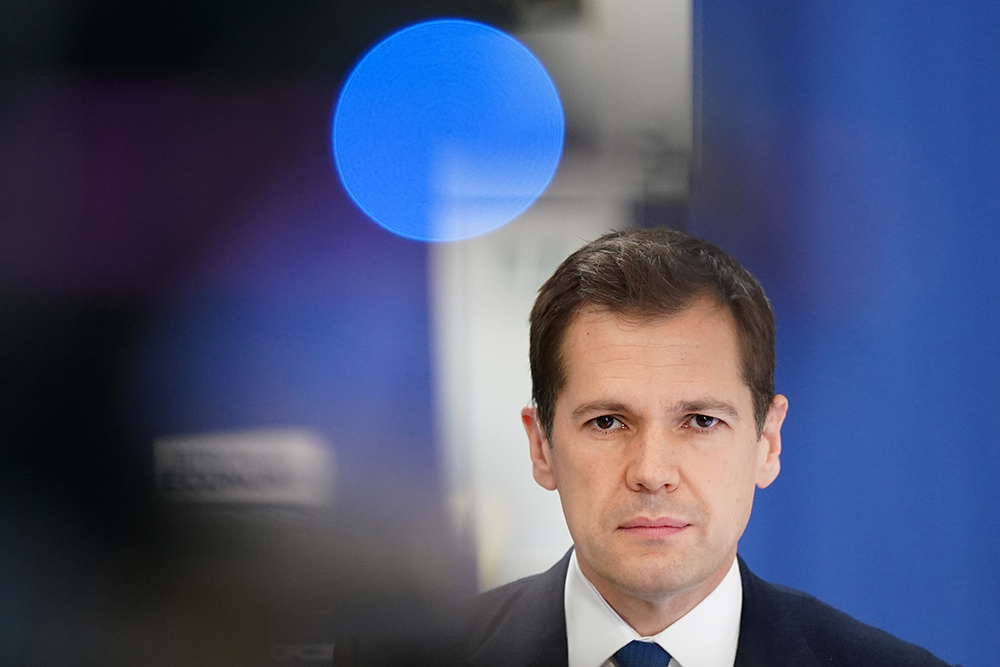Thomas Macaulay, the 19th-century historian, said there is ‘no spectacle so ridiculous as the British public in one of its periodical fits of morality’. Two hundred years on, the sentiment holds true, as the farce of ‘betgate’ – a stupid name for a stupid scandal – descends into ever greater absurdity.
This is not to say there is nothing serious about a politician using insider knowledge to place a bet. Hoping to cheat the bookmakers like that is a criminal offence, and it is only right that the Gambling Commission investigate anyone, of any political stripe, accused of doing so.
Two weeks ago, nobody considered this an issue of note
But what began as a genuine concern about those close to Rishi Sunak using potential knowledge of the election date to make a quick buck has ballooned into an unhelpful and unnecessary war on politicians betting altogether. Bored stiffed by this tedious election, confected media outrage has been whipped up against the harmless habit of MPs having a flutter.
Sunak is to blame. With his characteristic political tin ear, he took far too long to suspend Craig Williams and Laura Saunders, two Tory candidates being investigated by the Gambling Commission. Keir Starmer’s decision to immediately suspend Kevin Craig after Labour heard an investigation was being launched has made only made the Prime Minister’s sluggishness even more embarrassing.
Yet the difference between their cases highlights how moral panic obscures the rights and wrongs of political betting. Williams has been Sunak’s parliamentary bag carrier; Saunders is married to CCHQ’s head of campaigning. When it emerged that they had allegedly placed bets on the election date before it was announced, it was obvious that the pair could have known something was up before it was called.
The Gambling Commission’s investigation is, then, justified. By contrast, Craig’s case seems harmless. He is standing against the Tories in Central Suffolk and North Ipswich and placed a bet on himself losing the election. Since it’s a very safe Conservative seat, Craig was cashing in on his own poor chances.
Even so, the polls as they are, Craig might have had a better chance of making money if he had bet on winning. But his bet would be a benign reflection of his own lot. He would not be aiming to cheat. Like a football fan betting on their team losing, he would win either way. If he was elected, he would have gained something far more valuable than anything he could get from the bookies.
Betting on politics is an old practice. Evidence of odds-on papal successions dates to 1503. It has long been popular in Britain. During the Georgian gambling craze, Charles James Fox (an old Whig) was known to have ‘betted frequently, largely, and judiciously, on the social and political of the time’. The practice rather wilted under the strictures of Victorian morality but has revived since the 1960s.
Until now, it has garnered little hostile attention. No concerns have been raised about MPs deliberately losing elections, not least because the costs of becoming a candidate alone can be so extortionate as to make investment pointless. Two weeks ago, nobody considered this an issue of note.
But No. 10’s failure to close the story sooner has led to the absurd suggestion today from Mel Stride that MPs could be banned from betting altogether. In that case, what punishment would the Work and Pensions Secretary mete out on Alister Jack, his Cabinet colleague, for daring to put a bet a £20 bet on the election being between July and September? A slap on the wrist? A fine? A prison sentence?
Ill-tempered moralism is never a good position from which to legislate, regulate, or investigate. Having the Gambling Commission research every single candidate suspected of having a punt would not be letting light in upon magic but would be a colossal waste of their time. Dozens of would-be MPs might be implicated. Now the precedent has been set, would all need to be stripped of party support?
A line has to be drawn. Obvious instances of potential foul play should be investigated. But those getting on their high horses about political betting should be careful not to crucify a long-standing and inoffensive bit of fun in a media witch-hunt. What are the odds that they do?








Comments